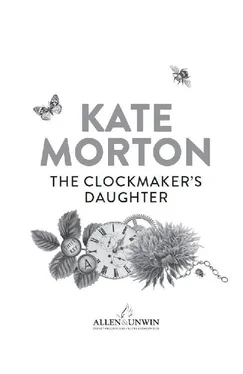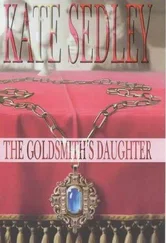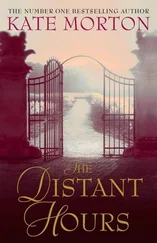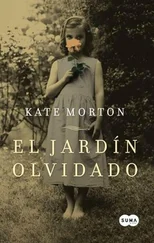Kate Morton - The Clockmaker's Daughter
Здесь есть возможность читать онлайн «Kate Morton - The Clockmaker's Daughter» весь текст электронной книги совершенно бесплатно (целиком полную версию без сокращений). В некоторых случаях можно слушать аудио, скачать через торрент в формате fb2 и присутствует краткое содержание. Год выпуска: 2018, Издательство: Allen & Unwin, Жанр: Старинная литература, на английском языке. Описание произведения, (предисловие) а так же отзывы посетителей доступны на портале библиотеки ЛибКат.
- Название:The Clockmaker's Daughter
- Автор:
- Издательство:Allen & Unwin
- Жанр:
- Год:2018
- ISBN:нет данных
- Рейтинг книги:4 / 5. Голосов: 1
-
Избранное:Добавить в избранное
- Отзывы:
-
Ваша оценка:
- 80
- 1
- 2
- 3
- 4
- 5
The Clockmaker's Daughter: краткое содержание, описание и аннотация
Предлагаем к чтению аннотацию, описание, краткое содержание или предисловие (зависит от того, что написал сам автор книги «The Clockmaker's Daughter»). Если вы не нашли необходимую информацию о книге — напишите в комментариях, мы постараемся отыскать её.
The Clockmaker's Daughter — читать онлайн бесплатно полную книгу (весь текст) целиком
Ниже представлен текст книги, разбитый по страницам. Система сохранения места последней прочитанной страницы, позволяет с удобством читать онлайн бесплатно книгу «The Clockmaker's Daughter», без необходимости каждый раз заново искать на чём Вы остановились. Поставьте закладку, и сможете в любой момент перейти на страницу, на которой закончили чтение.
Интервал:
Закладка:
And maybe, just maybe, if he did it right, when he gave the gift to her, he would be able to imbue it with the same powerful idea, the same light and love, that the stone had held when it was given to him.
CHAPTER THIRTY-TWO
Summer, 1962
She parked the car on the verge and turned off the ignition, but she didn’t get out; she was early. The wave of memories had been behind her all day, threatening to break, and now that she’d stopped, it had rolled over the top of her and spread out in a glittering wash. Juliet was beset, suddenly, with a visceral remembrance of the night they’d arrived off the train, the four of them, weary and hungry, no doubt traumatised after being uprooted from London.
It had been one of the most horrific periods in her life – the destruction of her home, the loss of Alan – and yet, in some ways, Juliet would have given anything to go back. To step through that gate over there, into the Birchwood Manor garden, and know that she would see five-year-old Tip, with his hair like a curtain; Bea, a surly pre-teen too proud to accept a hug; and Red, just Red, irrepressible, with those stubborn freckles and the gap-toothed smile. Their noise, their squabbles, their incessant questions. The stretch of time between now and then, the impossibility of going back, even for a minute, was a physical pain.
She had not expected it to feel like this. For her connection to the house to pull so hard at her chest. It wasn’t a weight upon her; it was a great sudden pressure inside her, pressing against her ribs in its urge to escape.
It had been twenty-two years now since Alan had died. Twenty-two years that he hadn’t lived, in which she had gone on ahead without him.
She didn’t hear his voice any more.
And now, here she was, her car parked on the verge outside Birchwood Manor. The house was uninhabited: she could see that at once. It wore the patina of neglect. But Juliet couldn’t have loved it more.
Sitting in the driver’s seat, she took the letter from her bag and read through it quickly. It was short and to the point; not his usual style. Little more than today’s date and a time.
Juliet still had every letter that he’d sent her. She liked knowing that they were all there in hat boxes in the back of her wardrobe. Beatrice liked to tease her about her ‘pen pal’, though since Lauren had been born, she didn’t have as much energy for stirring.
The clock in the dashboard clicked forward by a minute. Time was passing at a snail’s pace.
Juliet didn’t much fancy sitting in the confines of the Triumph for another forty minutes. She glanced at herself in the rear-view mirror, checked her lipstick, and then, with a decisive breath, hopped out of the car.
She followed the winding lane towards the cemetery, blinking away the ghostly image of Tip, stopped along the way to search for odd pieces of quartz and gravel. She turned left towards the village, and as she reached the crossroads was pleased to see that The Swan was still there.
After a minute of consideration, she summoned up the courage to go inside. Thirty-four years since she and Alan had arrived from London on the train, Juliet doing her best to conceal her pregnancy. She had half expected Mrs Hammett to arrive at the door to greet her, to start talking as if they’d only just had dinner the night before, but there was a new young woman behind the bar.
‘Changed hands a few years ago now,’ she said. ‘I’m Mrs Lamb. Rachel Lamb.’
‘Mrs Hammett – is she … ?’
‘Not likely. She’s moved in with her son and daughter-in-law, down the road.’
‘Close by?’
‘Too close. Forever popping in here to give me advice.’ She smiled to show that she was speaking fondly. ‘You might catch her before her midday nap, if you hurry. Takes it like clockwork.’
Juliet hadn’t thought to visit Mrs Hammett, but she followed Rachel Lamb’s instructions anyway and arrived soon enough at the cottage with the red front door and black letterbox. She knocked and held her breath.
‘I’m so sorry, you’ve missed her,’ said the woman who answered. ‘Down for the count and I daren’t wake her. She can be testy when she hasn’t had her winks.’
‘Perhaps you could mention me to her,’ said Juliet. ‘She might not remember. I’m sure she saw so many guests come and go, but she was kind to my family and me. I wrote an article about her. She and her WVS ladies.’
‘Oh, well, you should have said so! Juliet of the Laneway! She still has a framed copy on the wall beside her bed. Her claim to fame, she says.’
They exchanged pleasant chat for a few more moments and then Juliet said that she ought to be going, she was meeting someone soon, and Mrs Hammett’s daughter-in-law said that it was just as well as she had some pantry-sorting to be getting on with.
Juliet was turning to leave when she noticed the painting on the wall above the sofa. A portrait of a striking young woman.
‘Beautiful, isn’t she?’ said Mrs Hammett’s daughter-in-law.
‘Intoxicating.’
‘Came to me from my grandfather. Discovered it in his attic after he passed away.’
‘What a find.’
‘Quite the hoard, I assure you. Took us weeks to clear it – mostly rat-eaten rubbish. His own father had the house before him.’
‘Was he an artist?’
‘A policeman, back in the day. When he retired his boxes of old notes were put up top and forgotten. Don’t know where she came from. She’s unfinished – you can tell by the edges, where the colour isn’t right and the brushstrokes are rough – but there’s something in her expression, don’t you think? You can’t help but look at her.’
The woman in the painting stayed with Juliet as she started the walk back towards Birchwood Manor. She wasn’t familiar, not exactly, but the essence of the painting was reminiscent of something. Everything in her face, her expression, radiated light and love. It made her think of Tip for some reason, and Birchwood Manor, and that sunlit afternoon in 1928 when she’d fought with Alan and become lost and then found again, when she’d woken up in the garden beneath the Japanese maple tree.
No surprise, of course, that she should think of that day now. Juliet and Leonard had been exchanging letters for almost twenty years, ever since she wrote to ask him to contribute to a ‘Laneway’ article she’d planned to write but never got around to, about the many different lives led in one house. He’d received the letter too late, as it happened, and by the time he wrote back she was in London again and the war was wearily winding down. But they’d stayed in touch. He also liked writing, he said; he got along better with people on the page.
They had shared everything. All of the things she couldn’t write in her columns, the anger and grief and loss. And, by turns, the things that happened to them along the way: the beautiful, the funny, the true.
But they had never met in person, not since that afternoon in 1928. Today would be the first time.
Juliet hadn’t told anyone what she was doing. Her children were always encouraging her to go out for dinner with one eligible fellow or another, but this, today, him, was impossible to explain. How could she ever make them understand what she and Leonard had experienced, the two of them, that afternoon, in the garden of Birchwood Manor?
And so, he remained her secret; this journey back to the house their own.
The twin gables came into view, and Juliet felt herself begin to walk faster, almost as if she were being pulled along towards the house. She put her hand in her pocket to check that the tuppence was still there.
She had kept it all this time; now, at last, she could return it.
XII
Jack and Elodie have gone for a walk together, the two of them.
Читать дальшеИнтервал:
Закладка:
Похожие книги на «The Clockmaker's Daughter»
Представляем Вашему вниманию похожие книги на «The Clockmaker's Daughter» списком для выбора. Мы отобрали схожую по названию и смыслу литературу в надежде предоставить читателям больше вариантов отыскать новые, интересные, ещё непрочитанные произведения.
Обсуждение, отзывы о книге «The Clockmaker's Daughter» и просто собственные мнения читателей. Оставьте ваши комментарии, напишите, что Вы думаете о произведении, его смысле или главных героях. Укажите что конкретно понравилось, а что нет, и почему Вы так считаете.












